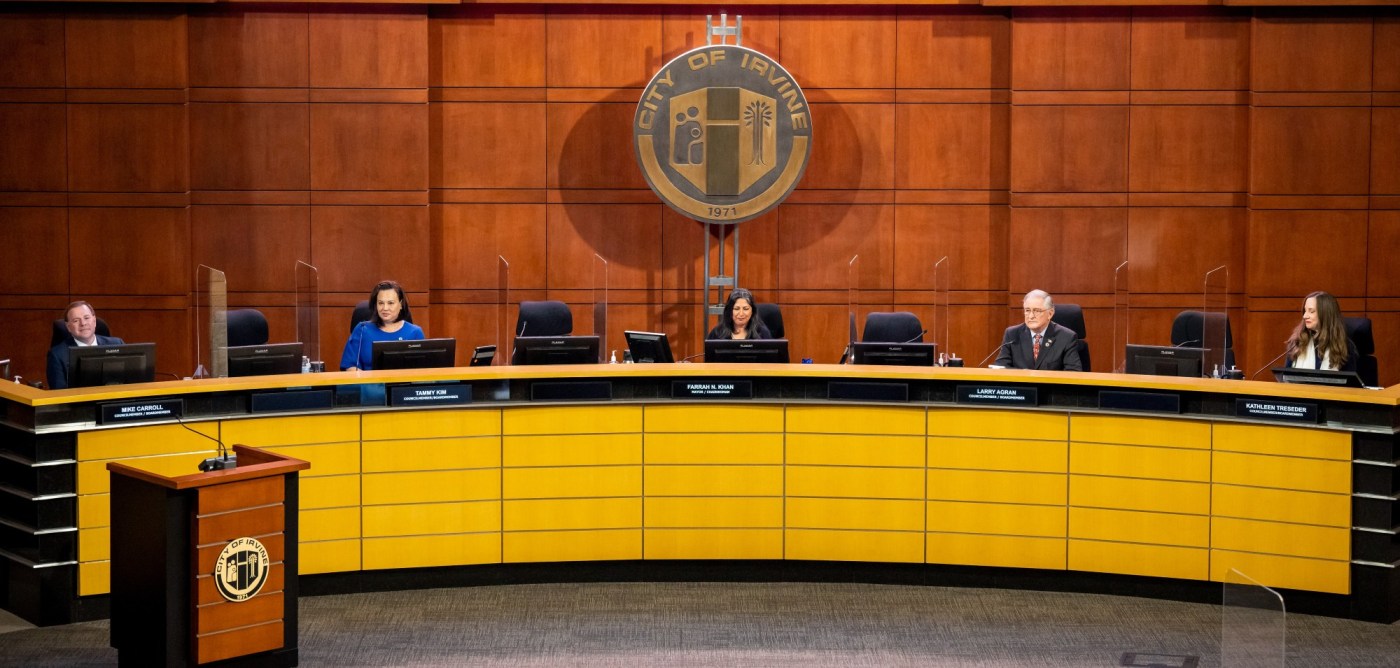In a last-second meeting Tuesday, the Irvine City Council voted 3-2 to back out of a nearly $20 million real estate transaction less than an hour before the deal was scheduled to close escrow. The city forfeited a non-refundable $1 million deposit.
The council initially voted 4-1 on Oct. 22 to approve the purchase of two adjacent lots, 17572 and 17622 Armstrong Ave., with a plan to convert them into the city’s first homeless shelter.
Although the plan had not gone before any city commission or through the normal course of public outreach, city staff had recommended the purchase due to what City Manager Oliver Chi described as a “small window where we have to engage in the transaction” to acquire the land at a below-market value.
On Tuesday, he said the council discussed the potential transaction in closed-session meetings at least three times before Oct. 22.
Yet, publicly, until this week, only Councilmember Mike Carroll expressed any concern about approving the deal without more transparency.
“You should not casually put your vote down for $20 million on a facility that has not fully been fleshed out,” Carroll told his colleagues on Oct. 22.
After that initial vote, condominium owners’ associations in the Irvine Business Complex rallied against the proposed project nearby their homes, meeting with city officials to express their concerns about transparency and safety. More than 100 Irvine Business Complex residents signed a petition to express dissatisfaction with the level of input they had on the project.
This led Mayor Farrah Khan, according to a memo to the city manager, to call for the council meeting on Tuesday to reconsider the land deal at the eleventh hour. The council convened at 11 a.m. with the deal set to close at 12:30 p.m.
Dozens of Irvine residents joining the meeting at City Hall cheered when the council ultimately nixed the deal.
Councilmembers Agran and Treseder stood by their initial votes.
“A lesson I learned a long time ago is that any time the city can acquire land at a reasonable price, we should do it,” Agran said. “We’re in great financial shape. It’s important to invest in the land. Land values always go up here.”
The council could have approved the deal and later decided to use the land for a shelter or some other purpose, Chi said.
“We’re not real estate speculators,” Carroll said. “This was a faulty process from the start.”
Eliminating the deal could postpone Irvine’s broader plans for what Chi called “a first-in-the-nation system-of-care for people experiencing or at risk of homelessness.”
In October, Chi said the city planned to have up-and-running emergency, transitional and permanent housing options for currently unhoused individuals by early 2026.
The Armstrong Avenue properties were slated to serve as a bridge shelter, a link between emergency services and permanent housing.
“The system itself is very much needed in our city, and I highly support it,” Khan said on Tuesday. “But this particular property and how we’ve come to today is what’s in question.”
At its meeting next week, the City Council is scheduled to review a proposed anti-camping ordinance in light of a Supreme Court decision this summer that makes it easier for cities in California and other states to impose restrictions on people sleeping in parks and on streets.
Currently, according to a staff report, Irvine is addressing unauthorized camping and storage of personal property on a case-by-case basis without enforcement options.





